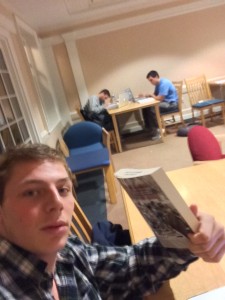Ottoman Brothers, Muslims, Christians, and Jews in Early Twentieth-Century Palestine, Stanford University Press, Stanford, California, 2011
For my second shelfie process, it took me a while before deciding what I wanted to research for the final paper. I found an interest in the religion practiced in Turkey, specifically, the Byzantine empire and its collapse. I wanted to find out the impact religion had on the collapse of the “second roman empire.”
Unfortunately, I realized that my book really didn’t have much to do with religion at all. It was focused more on just the actual cultures involved in the collapse briefly mentioning which religion they were. So I searched for a new book but now with a better idea of the topic itself.
The second book I found was Ottoman Brothers, Muslims, Christians, and Jews in Early Twentieth-Century Palestine, which after skimming and reviewing the table of contents seemed a much better book for the topic. The chapters range from sacred liberty to brotherhood and equality for all Ottomans of different religions. Another chapter that sounded interesting was the Ottomans of The Mosiac Faith. The sub-topics here included communal rivalries, critiques of Ottomanism and this chapters explains the communal aspect of the empire built around so many religions. While my topic was altered in the process of changing books, the study of Muslims, Christians, and Jews, all living within the same empire, has the potential to be an interesting and engaging research topic. It would take require a lot of time to fully understand the concepts in this book, but if properly analyzed, the resulting essay may be well worth it. I would need to determine if there are enough outside sources covering this material as well.


